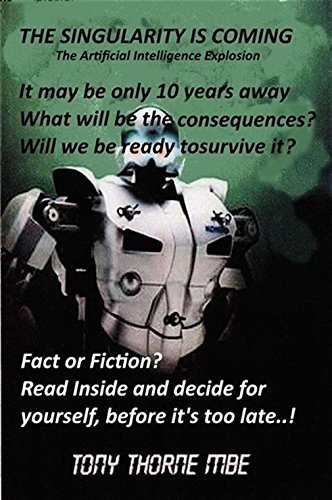
The Singularity is Near: When Humans Transcend Biology
Book Description
Imagine a future where humans and machines converge, transcending the very essence of biology itself. In "The Singularity is Near," Ray Kurzweil uncovers a breathtaking vision of a world transformed by exponential technological growth. From artificial intelligence to nanotechnology, the boundaries of what it means to be human blur into a thrilling race toward immortality and enhanced cognition. As innovation accelerates, destiny hangs in the balance: will humanity harness its own creations, or will it become a relic of the past? What does it truly mean to be alive in an age where consciousness can be engineered?
Quick Book Summary
"The Singularity is Near" by Ray Kurzweil delves into the rapid evolution of technology and its profound potential to transform human existence. Kurzweil predicts that exponential advances in artificial intelligence, genetics, nanotechnology, and robotics will culminate in a point called the Singularity—a future epoch where machine intelligence surpasses human intellect, and the nature of humanity is forever altered. By tracing historical trends and projecting future trajectories, he explores how biological constraints may be overcome, leading to possible immortality, vastly enhanced mental capacities, and the blurring line between human and machine. The book also addresses philosophical and ethical questions about identity, consciousness, and the societal impact of such monumental change, offering both a roadmap and a cautionary tale for humanity’s future.
Summary of Key Ideas
Table of Contents
Exponential Growth of Technology
Kurzweil begins by explaining the law of accelerating returns, arguing that technological progress grows exponentially rather than linearly. This exponential growth means each innovation builds upon previous ones, causing rapid and often unpredictable advancements. He demonstrates this with historical examples, particularly in computing, where processing power, data storage, and network capabilities have doubled at accelerating rates. Understanding this principle underpins his central argument that humanity is fast approaching an unprecedented era of change.
The Coming Fusion of Humans and Machines
The author explores the convergence of several major fields: artificial intelligence, nanotechnology, and biotechnology. As these domains mature, they begin to merge, enabling new technologies like brain-computer interfaces, highly precise gene editing, and microscopic medical robots. Kurzweil envisions a future in which biological human limits are systematically overcome—intelligence can be augmented, diseases eradicated, and aging dramatically slowed or reversed. This phase represents the blurring boundary between human biology and engineered technology.
Artificial Intelligence Surpassing Human Intelligence
Central to the book is the prediction of the Singularity, a moment when machines will exceed human intellectual capacities. Kurzweil believes that AI will reach this milestone within the 21st century, not only replicating but eventually exceeding all aspects of human reasoning and creativity. At this point, human and machine collaboration will become seamless, enabling advancements previously thought to be the realm of science fiction. The Singularity, he asserts, marks a tipping point for the evolution of intelligence on Earth.
Implications for Immortality and Human Consciousness
Kurzweil also examines transformative implications: technology could extend life indefinitely, allow for uploading of human consciousness, and enable mind-boggling processing speed and connectivity. With these advancements, traditional notions such as identity, mortality, and consciousness itself must be reconsidered. He speculates on what selfhood and personal continuity might mean when one’s mind can exist in multiple substrates and be replicated across different platforms.
Ethical and Societal Challenges
Finally, Kurzweil addresses the profound ethical and societal challenges these changes could precipitate. He discusses concerns such as loss of privacy, potential misuse or weaponization of technology, and the risk of social upheaval if benefits are unevenly distributed. The book calls for careful stewardship and wise policies to guide humanity through the risks and rewards of an era in which the very definition of what it means to be human may forever change.
Download This Summary
Get a free PDF of this summary instantly — no email required.





